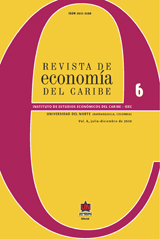Regional institutions in global “south”: the rationale of regional institutionalization in south america since the 21st century
Keywords:
Regionalism, globalization, identity, Regional Institutions, South AmericaAbstract
Particularly, beginning the 21st century the Political landscape saliently changed and shifted to debunk the notion of "the end of history" in South America. Several Latin American scholars including Bjorn Hettne, Osvaldo Sunkel, and Philippe De Lombaerde and the international organizations including United Nations for Latin American Economic Commission (UN ECLAC) have paid attention to the left-leaning governments which have eventually governed these states.
In this vein, this study (as an initial step for the research proposal) attempts to understand the logic of (new) regionalism under globalism and particularly to contribute to its academic value. This study is mainly approaching the subject from a theoretical foundation in order to understand and then to apply the rationale of politically-oriented regional institutions.
Published
Issue
Section
License
I, ____________________________________________, author of the work and/ or article, adult, residing in the city of _________________, bearing the Identity Card/Passport n.° ______________________, issued in _______________________, in command of his/her/their physical and mental faculties, party hereinafter referred to as AUTHOR, signs the following authorization so the reproduction, publication, communication and distribution of the work can be done, under the following terms:
1. That, regardless of existing legal regulations due to the relationship of the parties to this contract, and any other existing legal presumption, the parties agree that the AUTHOR authorizes the Universidad del Norte, with the purpose of reproduce, publish, communicate and distribute the material called in the Revista de Economía del Caribe.
2. That such authorization apply to the copyright of the work, by any means, known or to be known, the public communication of the work, and the distribution of the work, directly or by third parties, purely educational purposes.
3. The AUTHOR undertakes to inform and declare the existence of this authorization and to preserve the right of the journal Revista de Economía del Caribe to the first publication of the work.
4. The AUTHOR states that the article is original and his/her/their exclusive creation, there being no impediment of any kind for the authorization he/she/they is/are giving, responding thereto by any action: claim, plagiarism or any other type of complaint that might arise about.
5. That such authorization is granted for free.
6. The moral rights of the author on the article correspond exclusively to the AUTHOR, in virtue of which, the Universidad del Norte agrees to expressly and rigorously recognize and respect them.





























